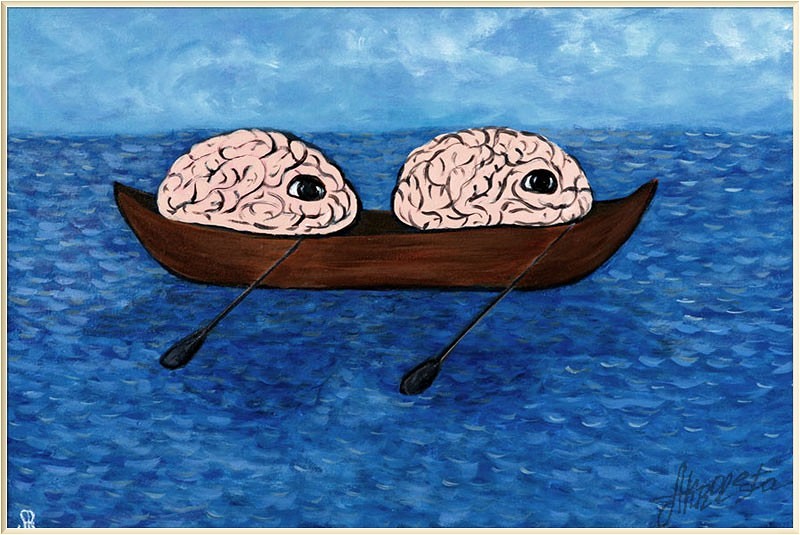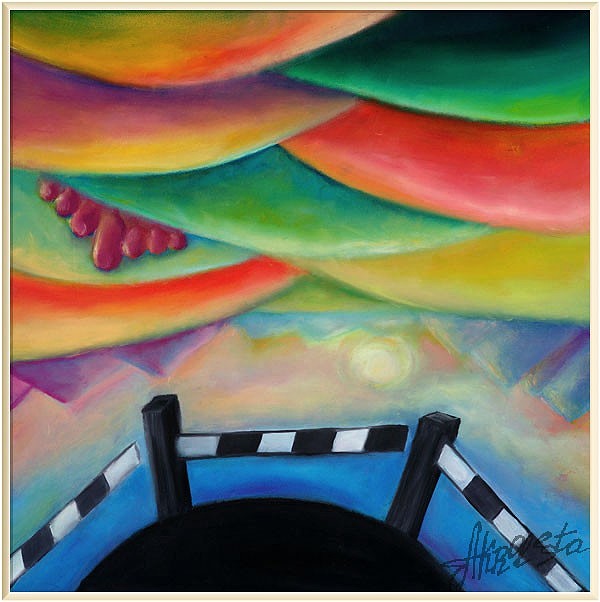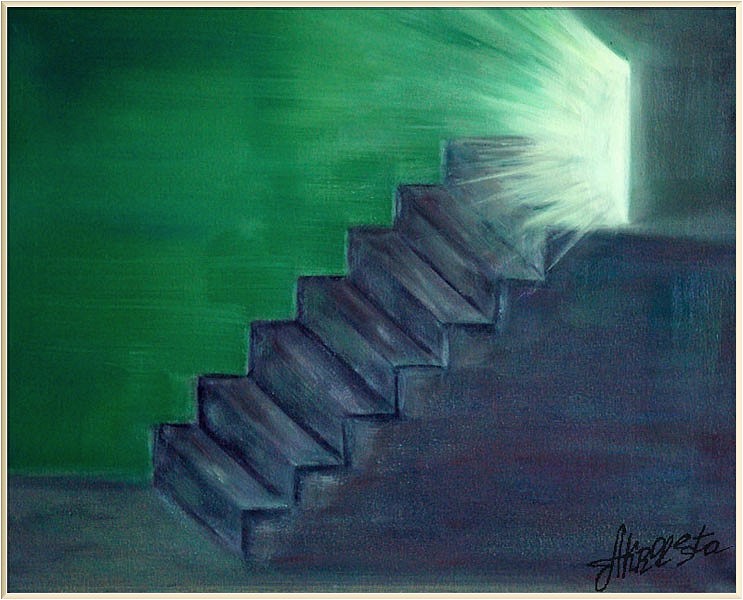Like Defects
Instead of an epigraph.
Most of all likes collect "seals". Can this be considered a sign of a toxoplasmosis epidemic?

')
In 1636, a certain Frenchman, Pierre de Fermat, was a lawyer by education and profession, wrote a treatise “Introduction to the theory of flat and spatial spaces”, where he outlined what is now called analytic geometry. His work did not interest anyone and, to put it in modern slang, he was sent to “ignore”, which delayed the development of mathematics for 70 years, until Euler became interested in Fermat’s work.
From 1856 to 1863, Austrian monk Gregor Johann Mendel conducted experiments on peas in the monastery's garden and discovered the basic laws of modern genetics, known to us as the "Mendel's Laws".
On March 8, 1865, Mendel published the results of his experiments. But the work did not cause interest among professionals. Mendel was also sent to “ignore”.
Only at the beginning of the 20th century did the professionals understand the importance of the conclusions made by him. True, for this they had to rediscover the laws of inheritance already derived by Mendel.
Thus, “ignore” and “ban” delayed the development of genetics for 50 years. This is slightly less than the time separating us from the invention of the first antibiotic for the treatment of gangrene or pneumonia or the polio vaccine. This is more than separates us from the appearance of the Internet, mobile phones, smartphones, personal computers, and social networks.
German meteorologist Alfred Wegener in 1912 put forward the theory of continental drift and suggested the existence of the Pangea promateric. He, too, was instructed by a bunch of "dislikes".
Wegener returned to meteorology and died in an expedition to Greenland in 1930. And in the late 60s, Wegener's correctness of the assumptions was fully confirmed. Those. after 48 years.
What are these stories about? The fact that even professionals can be wrong.
And when it comes to non-specialists who evaluate texts, thoughts, ideas, websites, books in one way or another, expertise turns into a farce, and grades into bans and dislikes are really strong ideas, good websites and important texts. While the banal "seals" or "pops" collect runaway huskies.
Many rating systems and rankings, in varying degrees and forms, are set up to account for users' likes. Perhaps this is not the best option. And maybe not the best.
After all, if you think a little bit, it is unlikely that Albert Einstein would get a lot of likes after publishing his theory. However, I did not get it, at first.
But Giordano Bruno and Socrates scored so many "dizlikes" that they were "banned" forever.
Pasternak, Sinyavsky, Daniel, Solzhenitsyn, Shostakovich, Jim Morrison, William Harvey, Jack London, Rembrandt, Vermeer, Henri Rousseau, Paul Cezanne, Marcel Duchamp, and many other recognized luminaries at one time fell under the “disliqué” and “ban”.
And today, anyone who says something that does not fit into the mainstream runs the risk of falling under the ban and dislikes.
And anyone who posts "cats" or another "pop" and mainstream, has every chance of "likes", success and good results in search engines.
What has changed? Why is Einstein the most likesable scientist? Changed readers, listeners, viewers. We have changed. Have grown up.

What are the conclusions?
1. Personal withdrawal. If a text, a thought or a sound goes against the generally accepted views, contrary to the reader's own opinion (listener, viewer), this is not a reason for a ban and dizlyka. This is an occasion to think. Analyze a different point of view, look at the "opposite side of the moon", sometimes even "look in the mirror."
2. The conclusion is practical. A ranking and rating system based on likes breeds cats and does not create a future. Such a system hides important and unusual information, hinders the development of thought and inhibits development.
As a result of such a ranking, for example, Galen would easily “banned” Harvey. Indeed, according to Galen, 10 centuries, 1000 years before Harvey, believed that the circulatory system is not closed.
What would happen now if Garvey was “banned”, and Galen would be in the “top”? Well, for example, the average life expectancy would be 35 years, people would die in cities, millions from diphtheria, plague, smallpox, syphilis and pneumonia. (Diseases that are now simply treated, or even completely disappeared, thanks to the followers of Harvey). Until the age of majority would survive one child out of ten.
So the price of ranking “by likes” can be quite expensive for mankind.
Once ranking in search engines was tied to the links. In fact, this is the same "like". Now, it seems, is not tied. But it has been replaced by a different kind of “like”, for example, “user behavior” (including X) ... And the vast majority of users are interested in “seals” and other usual and pleasant mainstream.
How to and how can this be changed? I have no recipe. This text only indicates a problem. Obviously, one thing - you must abandon the wrong method. It is possible that at first there will be nothing to replace it. And then - there is. A lot of smart people, if they do not ban, of course.

Most of all likes collect "seals". Can this be considered a sign of a toxoplasmosis epidemic?

')
In 1636, a certain Frenchman, Pierre de Fermat, was a lawyer by education and profession, wrote a treatise “Introduction to the theory of flat and spatial spaces”, where he outlined what is now called analytic geometry. His work did not interest anyone and, to put it in modern slang, he was sent to “ignore”, which delayed the development of mathematics for 70 years, until Euler became interested in Fermat’s work.
From 1856 to 1863, Austrian monk Gregor Johann Mendel conducted experiments on peas in the monastery's garden and discovered the basic laws of modern genetics, known to us as the "Mendel's Laws".
On March 8, 1865, Mendel published the results of his experiments. But the work did not cause interest among professionals. Mendel was also sent to “ignore”.
Only at the beginning of the 20th century did the professionals understand the importance of the conclusions made by him. True, for this they had to rediscover the laws of inheritance already derived by Mendel.
Thus, “ignore” and “ban” delayed the development of genetics for 50 years. This is slightly less than the time separating us from the invention of the first antibiotic for the treatment of gangrene or pneumonia or the polio vaccine. This is more than separates us from the appearance of the Internet, mobile phones, smartphones, personal computers, and social networks.
German meteorologist Alfred Wegener in 1912 put forward the theory of continental drift and suggested the existence of the Pangea promateric. He, too, was instructed by a bunch of "dislikes".
Wegener returned to meteorology and died in an expedition to Greenland in 1930. And in the late 60s, Wegener's correctness of the assumptions was fully confirmed. Those. after 48 years.
What are these stories about? The fact that even professionals can be wrong.
And when it comes to non-specialists who evaluate texts, thoughts, ideas, websites, books in one way or another, expertise turns into a farce, and grades into bans and dislikes are really strong ideas, good websites and important texts. While the banal "seals" or "pops" collect runaway huskies.
Many rating systems and rankings, in varying degrees and forms, are set up to account for users' likes. Perhaps this is not the best option. And maybe not the best.
After all, if you think a little bit, it is unlikely that Albert Einstein would get a lot of likes after publishing his theory. However, I did not get it, at first.
But Giordano Bruno and Socrates scored so many "dizlikes" that they were "banned" forever.
Pasternak, Sinyavsky, Daniel, Solzhenitsyn, Shostakovich, Jim Morrison, William Harvey, Jack London, Rembrandt, Vermeer, Henri Rousseau, Paul Cezanne, Marcel Duchamp, and many other recognized luminaries at one time fell under the “disliqué” and “ban”.
And today, anyone who says something that does not fit into the mainstream runs the risk of falling under the ban and dislikes.
And anyone who posts "cats" or another "pop" and mainstream, has every chance of "likes", success and good results in search engines.
What has changed? Why is Einstein the most likesable scientist? Changed readers, listeners, viewers. We have changed. Have grown up.

What are the conclusions?
1. Personal withdrawal. If a text, a thought or a sound goes against the generally accepted views, contrary to the reader's own opinion (listener, viewer), this is not a reason for a ban and dizlyka. This is an occasion to think. Analyze a different point of view, look at the "opposite side of the moon", sometimes even "look in the mirror."
2. The conclusion is practical. A ranking and rating system based on likes breeds cats and does not create a future. Such a system hides important and unusual information, hinders the development of thought and inhibits development.
As a result of such a ranking, for example, Galen would easily “banned” Harvey. Indeed, according to Galen, 10 centuries, 1000 years before Harvey, believed that the circulatory system is not closed.
What would happen now if Garvey was “banned”, and Galen would be in the “top”? Well, for example, the average life expectancy would be 35 years, people would die in cities, millions from diphtheria, plague, smallpox, syphilis and pneumonia. (Diseases that are now simply treated, or even completely disappeared, thanks to the followers of Harvey). Until the age of majority would survive one child out of ten.
So the price of ranking “by likes” can be quite expensive for mankind.
Once ranking in search engines was tied to the links. In fact, this is the same "like". Now, it seems, is not tied. But it has been replaced by a different kind of “like”, for example, “user behavior” (including X) ... And the vast majority of users are interested in “seals” and other usual and pleasant mainstream.
How to and how can this be changed? I have no recipe. This text only indicates a problem. Obviously, one thing - you must abandon the wrong method. It is possible that at first there will be nothing to replace it. And then - there is. A lot of smart people, if they do not ban, of course.

Source: https://habr.com/ru/post/442714/
All Articles